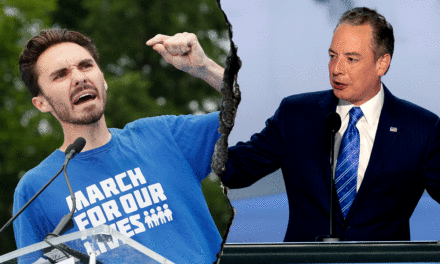In a recent wave of discontent, local business owners have united in their opposition against city officials, alleging that the municipality is engaging in dubious practices akin to a game of “musical chairs” when it comes to property rights and eminent domain. This growing tension has brought property ownership rights to the forefront of community discussions, raising concerns about fairness and transparency in governmental proceedings.
The conflict primarily revolves around a series of property acquisitions driven by city plans that many residents are now questioning. Business owners claim that the city is hastily relocating tenants and taking properties under the pretext of urban development, causing instability and uncertainty in the local economy.
Eminent domain is a government power that allows for the expropriation of private property for public use, often with compensation provided to the property owners. However, critics argue that the term “public use” is being misinterpreted in this instance. Business leaders assert that the city is strategically playing a game where properties are taken not for the benefit of the public, but rather to facilitate further development schemes that primarily favor larger corporations or city plans that do not benefit local communities.
“It feels like we’re playing musical chairs where, at the end of the day, the music stops and we’re left with nowhere to go,” said one business owner who operates a local café. “We have invested years into our businesses, and now we are being told we must leave without sufficient notice or fair compensation. This is not how a city should treat its citizens.”
These sentiments resonate deeply within the community, particularly among local business owners who fear for their livelihoods. Many businesses that have been served eviction notices argue that the abrupt actions by the city are not just displacing families but also dismantling the fabric of the local economy.
City officials, however, contend that their actions stem from a need to modernize and revitalize urban spaces, which, they argue, are vital for future growth. A spokesperson for the city noted, “We are committed to enhancing the quality of life in our community by transforming underutilized areas into vibrant developments that will attract investment and generate jobs.”
While city representatives assure that long-term benefits will outweigh short-term disruptions, skepticism abounds among business owners. They are demanding greater accountability and transparency in the decision-making processes that lead to property seizures. Most notably, they seek assurances that their voices will be heard in discussions about urban planning and development.
The ongoing debates spilled over into a recent city council meeting, where business owners and advocates voiced their concerns directly to city leaders. Many expressed disappointment over the lack of communication between the city and the local business community, with some asserting that they were not consulted at all before significant decisions affecting their properties were made.
Frustration mounted as one local entrepreneur recounted how their restaurant, a staple in the community for over a decade, was now on the chopping block without any prior warning. “We received a letter out of the blue with an eviction notice, and the city’s explanation was vague at best,” the restaurateur recounted. “It’s as if our histories and contributions as businesses mean nothing. We deserve better than this.”
As part of their response, business owners have organized a coalition to address their grievances and lobby city officials for reforms that protect local enterprises against arbitrary eminent domain actions. Their demands include clearer policies regarding property acquisition and adequate compensation frameworks that honor the true value of local businesses.
In the coming weeks, this coalition plans to host community forums to educate others about the implications of eminent domain and to galvanize support for their cause. They are urging fellow business owners, residents, and anyone affected by the city’s decisions to come together in solidarity.
The stakes are high, as these actions will likely set precedents for how the city engages with its business community in the future. Many community organizers emphasize the need for collective action, stating that the outcome of this dispute could either foster a collaborative relationship between local businesses and city officials or deepen existing mistrust.
“This is about more than just property; it’s about valuing the contributions of the local business community,” said a leader in the coalition. “Our businesses are not just economic units; they are rooted in this community, creating jobs, fostering relationships, and bringing life to our neighborhoods. We’re fighting for a city that values us.”
Amid this turmoil, experts in urban development stress the importance of balancing growth with the rights of existing businesses and residents. They argue that effective urban planning should incorporate the feedback of all stakeholders to forge a pathway that honors both progress and community heritage.
As the city’s plans unfold and discussions continue, business owners remain vigilant, demanding meaningful engagement and seeking to hold city officials accountable for their decisions regarding eminent domain. They believe it is crucial not only for their survival but also for the integrity of the city’s development strategies.
As the situation evolves, it becomes increasingly clear that the outcome of this eminent domain dispute may reshape the relationship between the city and its entrepreneurs, influencing policy frameworks and governance strategies for years to come.
The tensions highlight a broader narrative that’s seen across the nation, where urban development often clashes with local business interests and community sentiment. As cities grapple with modernization, the challenge remains to create inclusive spaces that respect both environmental and economic dynamics, requiring a thoughtful approach to how properties are acquired and developed.
In conclusion, this ongoing eminent domain conflict serves as a critical reminder of the need for cities to engage with their communities. Bundling public interest with private stakes will require a delicate balance, but for business owners caught in the crossfire, the desire is clear: a more inclusive and transparent decision-making process that respects the history, contributions, and rights of local entrepreneurs in shaping the urban landscape.
































